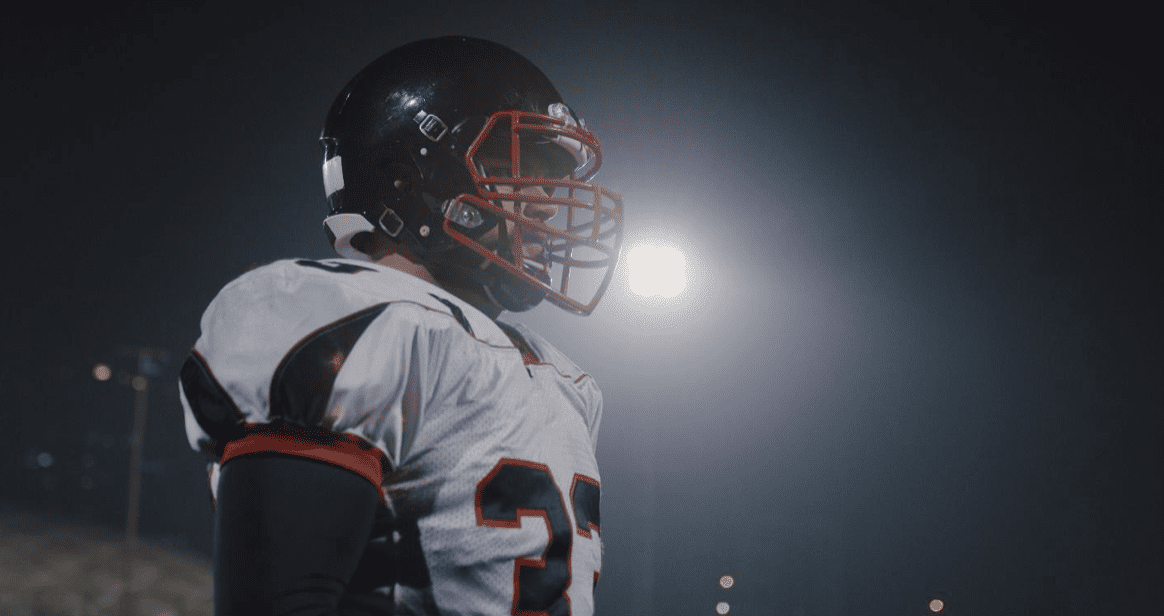In 2014, approximately 2.87 million people were hospitalized or died from serious traumatic brain injury (TBI), many of whom experienced a concussion. Though around 48% of those injuries were related to falls, there are also some 300,000 concussions every year that are football related, and many more TBIs — perhaps as many as half — go either unreported or undetected.
It's vital to seek treatment for a concussion as soon as possible. While initial diagnostic testing is often conducted by a physician or sports medicine specialist, typically in a hospital setting, those battling ongoing symptoms may benefit from chiropractic care.
What is a Concussion?
When you suffer a sudden bump or blow to the head, you may receive a concussion, a type of TBI caused by rapid movement forcing the brain to move back and forth rapidly inside your skull. That unnaturally abrupt motion can damage the brain, leading to changes on a chemical and/or cellular level.
Symptoms of a Concussion
Concussions range from mild to severe, with symptoms following a similar arc. Signs of a concussion include:
- Headache
- Head pressure
- Blurry vision
- Confusion or mental fogginess
- Dizziness
- Memory loss, particularly surrounding the event that caused the injury
- Nausea and/or vomiting
- Slurred speech
- Trouble forming verbal responses
- Tinnitus (ringing in the ears)
- Uncontrollable fatigue
- Sleep issues
- Problems with taste and smell
- Lack of concentration
- Irritability
- Anxiety
- Mood swings and personality changes
- Depression
- Sensitivity to light and noise
While some of the physical manifestations of a concussion will show up right away, cognitive symptoms may not appear for hours, days or even weeks. Sometimes symptoms persist indefinitely, in which case a patient may be diagnosed with a disorder called post-concussion syndrome. With PCS, symptoms often fade and reappear in response to physical or mental stress. The syndrome can be quite debilitating and disrupt the patient's life considerably. If you think you're under immense stress and that it's aggravating other symptoms in your body, then seek out stress management classes from a Legacy Healing near you, so that you can learn to control stress better.
To help facilitate a fast, complete recovery, it's crucial to seek medical treatment any time you have a head injury, but especially if you experience any of the symptoms listed above. Red flag symptoms, such as loss of consciousness, uneven pupils, difficulty walking, repeated vomiting, and excruciating headache or seizures, requires an immediate call to 911 or trip to the emergency room.
Chiropractic Care for Concussions
Conventional medicine focuses on two issues surrounding concussions: prevention and medicated management of symptoms. Both concerns are valid, especially the idea of prevention; wearing a helmet and other protective gear while playing sports helps prevent a TBI in the first place. It also helps ward off repeated brain injuries, the consequences of which can be increasingly catastrophic.
With chiropractic care, however, we take treatment one step further by addressing all the peripheral concerns caused by your concussion. Rather than throwing anti-inflammatories at your muscle pain or prescribing painkillers to quell migraines, we try to get to the root cause, which is often a dysfunction in the musculoskeletal or nervous systems.
Understanding Brain Health and Alignment
Your spine is amazing. There are 33 vertebrae working hard to keep you upright and moving, including the ones at the very top holding your head in place. The force behind a traumatic brain injury or whiplash can knock those vertebrae out of place — even a misalignment as small as one-fourth of a millimeter could interrupt cellular communication and lead to a surprisingly robust list of symptoms.
Seeing a Chiropractor for Concussions
Though your first stop for a suspected concussion can and should be an MD or other emergency room personnel, a doctor of chiropractic can help with everything from evaluation to management, especially in the long-term. Chiropractors with advanced training in sports medicine are likely especially well-suited to concussion treatment, but all chiropractors have the basic knowledge and expertise to lend a helping hand.
Chiropractic care for concussions often includes many or all of the following steps:
The Initial Visit
This is when you'll meet your chiropractor and learn more about the link between concussions and chiropractic care. You'll fill out important paperwork detailing your medical history, any medications you're currently taking, and any symptoms you're experiencing. You'll have a chance to run over financial information too; the front office staff can help you navigate your insurance policy and find out what chiropractic coverage exists.
The Physical Exam
As part of that initial visit, your chiropractor will conduct a thorough physical exam. This happens with all new chiropractic patients and may include everything from range-of-motion tests to lab work. With a suspected concussion in play, your chiropractor may also conduct neurological tests to determine the extent of your symptoms and pinpoint issues you may not have even noticed on your own.
Forming a Treatment Plan: Chiropractic Care and Concussions
Based on their findings, your chiropractor will put together a detailed treatment plan tailored to your physical, mental, and emotional needs. This plan may involve a whole host of treatments and services, including spinal decompression, manual manipulation, or physical therapy. The goal is to address the root cause of symptoms such as headaches and gait abnormalities. Though these problems may be traced back to the concussion itself, it's not uncommon to find that accident- or injury-related misalignments are playing a huge role in ongoing discomfort.
The Adjustment
Once you've heard and agreed to your chiropractor's concussion treatment plan, it's time to get adjusted. Many first-time patients are wary about the adjustment process, but it's actually quite quick and painless. You'll lie on a special table — you should wear comfortable clothes to allow for easy movement — and relax as your DC addresses vertebral misalignments, called subluxations, all along your spine.
This is where all the fascinating work happens. Did you know...
- A subluxation of the C1 vertebrae (the very top of your cervical spine) can lead to everything from headaches to memory lapses?
- A subluxation of the T6 vertebrae (right in the middle of your thoracic spine or torso) can cause stomach problems, such as nausea and indigestion?
- Subluxations in the lumbar spine can cause sciatica, backaches, improper gait, and menstrual problems?
The main takeaway is that even when others may dismiss your concussion symptoms as unavoidable or even common, that doesn't mean there aren't ways to curtail the discomfort and help increase functionality. Rather than masking your concerns with medicine, chiropractors find out what's happening underneath the inflammation and pain.
Helping Yourself Heal from a Concussion
Whether you receive ongoing chiropractic care for your concussion or not, there are three things that can help facilitate progress:
- Rest: Pushing yourself will only cause further stress and anxiety, neither of which is good for a brain trying its best to heal.
- Time: Once the immediate medical needs have been addressed, many concussion symptoms only resolve with time. Chiropractic helps the body function at its best, but nothing can outright cure a concussion.
- Patience: Rest and time can't be rushed. Give your body a break and some extra love, and it'll love you back.
In the meantime, protect your brain by adhering to concussion protocols (this means taking time off from sports, if applicable), creating a safe home environment, and wearing safety equipment, such as seat belts and headgear depending on the situation.
If you're battling ongoing symptoms of a concussion and need help navigating your new normal, reach out to our team at Northeast Spine & Sports Medicine. Our convenient New Jersey locations offer service to patients throughout Ocean and Monmouth Counties, with offices in Aberdeen, Barnegat, Jackson, Freehold, Manchester, Point Pleasant, Neptune, Lakewood, and Toms River.
Call (732) 653-1000 today to make an appointment and get on the road to a happier, healthier you.


